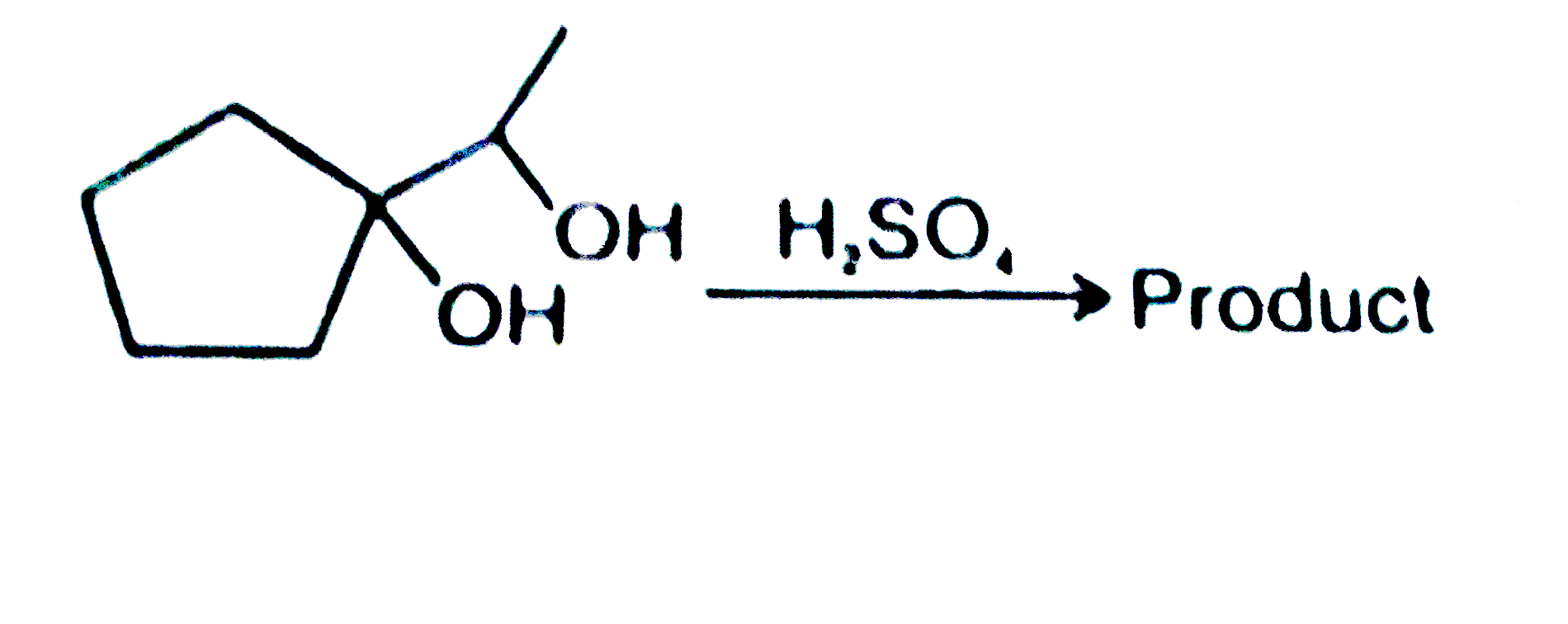Why tertiary alcohols react less rapidly with metallic sodium than do primary alcohols ?
The correct Answer is:The +I.E. Of three methyl groups on central C-atom of tert-butyl alcohol makes is partially negative with the result that it pushes the electron pair of −OH bond towards H-atom and thus H-atom is not replaced easily.
Step by step video solution for Why tertiary alcohols react less rapidly with metallic sodium than do primary alcohols ? by Chemistry experts to help you in doubts & scoring excellent marks in Class 12 exams.
Topper's Solved these Questions
- BOOK - ALLENCHAPTER - ALKENE, ALKANE & ALKYNE EXERCISE - EXERCISE-4[B]47videos
ALKENE, ALKANE & ALKYNE
- BOOK - ALLENCHAPTER - ALKENE, ALKANE & ALKYNE EXERCISE - EXERCISE-558videos
ALKENE, ALKANE & ALKYNE
- BOOK - ALLENCHAPTER - ALKENE, ALKANE & ALKYNE EXERCISE - EXERCISE-5(B)66videos
ALKENE, ALKANE & ALKYNE
- BOOK - ALLENCHAPTER - AIIMS 2019EXERCISE - CHEMISTRY40videos
AIIMS 2019
- BOOK - ALLENCHAPTER - ALKYL AND ARYL HALIDEEXERCISE - EXERCISE-05 (B)35videos
ALKYL AND ARYL HALIDE
Similar Questions
Which compound is tertiary alcohol ?
View SolutionAlcohols undergo acid catalysed elimination reactions to produce alkenes. Because water is lost in the elimination , this reaction is called dehydration reaction. Secondary and tertiary alcohols always give E1 reaction in dehydration. Primary alcohols whose β-carbon is branched also give E1 reaction. The reactivity of alcohol for elimination reaction is tertiary alcohol > secondary alcohol > Primary alcohol.
Which of the following dehydration product (major ) is incorrect ?View Solution
Knowledge Check
- Question 1 - Select One
Tertiary butyl alcohol can be prepared by the reaction of
Aacetadehyde and ethyl magnesium iodideBacetone and methyl magnesium iodideCformaldehyde and propyl magnesium iodideDbutanone and methyl magnesium iodide.
Alcohols undergo acid catalysed elimination reactions to produce alkenes. Because water is lost in the elimination , this reaction is called dehydration reaction. Secondary and tertiary alcohols always give E1 reaction in dehydration. Primary alcohols whose β-carbon is branched also give E1 reaction. The reactivity of alcohol for elimination reaction is tertiary alcohol gt secondary school gt Primary alcohol.
Identify the product in the given reaction :
 View Solution
View SolutionStatement -1: Acid catalyzed dehydration follows E1 mechanism
Statement - 2 : Tertiary alcohols are more reactive than primary alcohols towards HBr.
Statement -3 : Dehydrohalogenation of alkyl halide follows E2 mechanismView SolutionThe yield of ketone when a secondary alcohol is oxidised is more than the yeild of aldehyde when a primary alcohol is oxidised.
View SolutionStatement -1 Secondary alcohols react faster than primary alcohols with Na
Statement -2 : O - H bond in secondary alcohol is less polar than than primary alcoholView SolutionWhy tertiary amines do not react with acid chlorides and acid anhydrides?
View SolutionAlcohols react with Grignard reagent to form
View SolutionThe order of reactivity of alcohols with sodium metal is
View Solution

